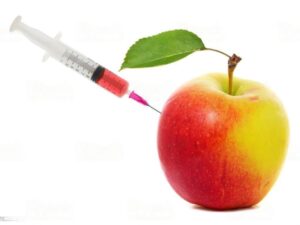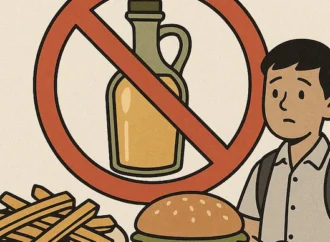
Imagine getting your favourite seasonal fruit, at any time of the year, at your local supermarkets. Sounds too good to be true, right? Here’s the catch. In reality, those tempting, unsuspecting fruits could be laced with toxic chemicals used to artificially ripen them. While fruits are packed with essential vitamins and nutrients, there are a few things one must keep in mind when purchasing and consuming them.
The Benefits of Consuming Fruits
The WHO (World Health Organization) suggests consuming at least five portions, or 400 g of fruits and vegetables every day to reduce the risk of NCDs (Non- non-communicable diseases), and to ensure a regular intake of dietary fibre and a healthy lifestyle. People who consume fruits as part of a well-balanced diet are less likely to develop chronic diseases. Fruits are excellent sources of fibre, minerals and vitamins, and can help prevent vitamin A and vitamin C deficiencies. Fruits are also high in antioxidants such as flavonoids that promote good health.
The Process and Reality of Ripening
The benefits that fruits can provide are highly dependent on how they are ripened. Allowing them to ripen the natural way on the plant itself, is the best option. Fruits ripen in nature through several diverse physical and biochemical processes after reaching full maturity. These processes result in an increase in sugar content and a decrease in acid content in fruits, causing them to soften, change colour, and develop a distinct aroma and flavour. The ripening process is heavily influenced by two factors: temperature and relative humidity.
However, waiting for fruits to ripen on their own, at a natural pace, is not always feasible to meet the market demand. Fruits are often transported over long distances; therefore, if they’re harvested when ripe, they get spoilt before reaching their destination. Under such settings, farmers harvest them far before they ripen. The traders then use particular chemicals to artificially ripen at the destination.
Chemicals used for Artificial ripening

Calcium Carbide
Chemicals such as Ethephon (2-chloroethyl phosphonic acid) are used to mimic the process of ripening, which penetrates the fruit and decomposes ethylene (the gaseous compound that starts the ripening process).
Another chemical which is commonly used is calcium carbide (a known carcinogen), which forms acetylene, an analogue of ethylene. It’s a powerful explosive that breaks down the organic composition of vitamins and other micronutrients. Furthermore, it merely changes the colour of the skin; the fruits remain raw inside.
Additionally, hazardous chemicals like arsenic and phosphorus are frequently found in industrial-grade calcium carbide. The quality of the fruit is substantially lowered when calcium carbide is used; the fruit is too soft, lacks the natural sweetness that it would otherwise have, and rots faster than it would have by itself naturally. Besides this, since the quantity of calcium carbide used depends highly on how raw the fruit is, the level of toxicity increases considerably.
The Dangers of consuming Artificially ripened Fruits
Considering the horrific list of chemicals used to artificially ripen fruits, the degree of harm they cause to our health should be no surprise. Consuming fruits with arsenic and phosphorous can lead to poisoning with symptoms such as weakness, burning sensation/ uneasiness in the chest and abdomen area, thirst, vomiting, diarrhoea with/ without blood, difficulty swallowing, shortness of breath, cough, wheezing, burning sensation in the eyes, permanent eye damage, and ulcers on the skin, mouth, throat, nose and even has the potential of causing damage to hormonal functioning.
Consuming mangoes that have been artificially ripened with calcium carbide (a harmful chemical that the FSSAI has banned for artificially ripening fruits under the Prevention of Food Adulteration Act, 1954) can cause gastrointestinal distress and other stomach issues. It damages the mucosal tissue of the stomach and causes digestive problems. If these chemicals are consumed for a long time, they can cause peptic ulcers. Consuming calcium carbide via artificially ripened fruits can harm the neurological system by inducing prolonged hypoxia. Which causes symptoms such as — dizziness, memory loss, headache, extreme sleepiness, general weakness, low blood pressure, seizure, etc.
Precaution is Better than Cure
Anyone found using calcium carbide will face imprisonment for 3 years and will be liable to pay a fine of ₹1,000. Despite the irreparable harm these substances can cause to human health and the punitive measures in place, their use is ubiquitous and pervasive. While devising a long-term and effective solution may be challenging, there are a few measures we can take as consumers, to prevent consuming artificially ripened fruits.
Artificially ripened fruits can be identified by their appearance, i.e., fruits like mangoes, papaya, and tomatoes will have uniformly coloured skin whereas the fruit will be yellow and the stem will be dark green in bananas. Additionally, the fruits will have lesser flavour and shorter shelf life. It’s also possible that if the fruits are available before the season, they’ve been artificially ripened. Calcium carbide can be minimized by washing and peeling fruits before eating. It’s also possible to test the fruits in regular laboratories to see if they’re contaminated.
Therefore, dear readers, keep the aforementioned precautionary measures in mind. Keep an eye out for the different malpractices prevalent in our marketplaces, be safe, and follow good eating habits!
 Food Manifest
Food Manifest 


















Leave a Comment
Your email address will not be published. Required fields are marked with *